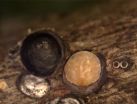(Press-News.org) A growing number of consumers are willing to pay a premium for fruits, vegetables and other foods labelled "organic", but whether they're getting what the label claims is another matter. Now scientists studying conventional and organic tomatoes are devising a new way to make sure farms are labelling their produce appropriately. Their report, which appears in ACS' Journal of Agricultural and Food Chemistry, could help prevent organic food fraud.
Researchers from the Bavarian Health and Food Safety Authority and the Wuerzburg University note that the demand for organic food is growing at a rapid clip. Its global market value nearly tripled between 2002 and 2011, when it reached $62.8 billion. But because organic food can fetch prices often twice as high as conventionally produced food, the risk for fraudulent labelling has grown just as fast. However, figuring out whether a fruit or vegetable was grown under organic conditions is fraught with complications. Currently, the most reliable authentication technique analyzes the stable isotope composition of nitrogen, but it is not fool-proof. Monika Hohmann and her colleagues decided to take a stab at developing a new method.
They looked to a technique called nuclear magnetic resonance spectroscopy, which has been used to authenticate foods, including honey and olive oil. They analyzed tomatoes grown in greenhouses and outdoors, with conventional or organic fertilizers. Their data showed a trend toward differentiation of organic and conventional produce. The researchers conclude that the test is a good starting point for the authentication of organically produced tomatoes, and its further refinement could help root out fraudulently labelled foods.
INFORMATION:
The authors acknowledge funding from the Bavarian State Ministry of the Environment and Consumer Protection.
The American Chemical Society is a nonprofit organization chartered by the U.S. Congress. With more than 161,000 members, ACS is the world's largest scientific society and a global leader in providing access to chemistry-related research through its multiple databases, peer-reviewed journals and scientific conferences. Its main offices are in Washington, D.C., and Columbus, Ohio.
To automatically receive news releases from the American Chemical Society, contact newsroom@acs.org.
Follow us: Twitter Facebook
How to prevent organic food fraud
2014-08-27
ELSE PRESS RELEASES FROM THIS DATE:
New study throws into question long-held belief about depression
2014-08-27
New evidence puts into doubt the long-standing belief that a deficiency in serotonin — a chemical messenger in the brain — plays a central role in depression. In the journal ACS Chemical Neuroscience, scientists report that mice lacking the ability to make serotonin in their brains (and thus should have been "depressed" by conventional wisdom) did not show depression-like symptoms.
Donald Kuhn and colleagues at the John D. Dingell VA Medical Center and Wayne State University School of Medicine note that depression poses a major public health problem. More than 350 million ...
Fear, safety and the role of sleep in human PTSD
2014-08-27
The effectiveness of post-traumatic stress disorder (PTSD) treatment may hinge significantly upon sleep quality, report researchers at the University of California, San Diego School of Medicine and Veterans Affairs San Diego Healthcare System in a paper published today in the Journal of Neuroscience.
"I think these findings help us understand why sleep disturbances and nightmares are such important symptoms in PTSD," said Sean P.A. Drummond, PhD, professor of psychiatry and director of the Behavioral Sleep Medicine Program at the VA San Diego Healthcare System. "Our study ...
Men who are uneducated about their prostate cancer have difficulty making good treatment choices
2014-08-27
They say knowledge is power, and a new UCLA study has shown this is definitely the case when it comes to men making the best decisions about how to treat their prostate cancer.
UCLA researchers found that men who aren't well educated about their disease have a much more difficult time making treatment decisions, called decisional conflict, a challenge that could negatively impact the quality of their care and their long-term outcomes.
The study should serve as a wake-up call for physicians, who can use the findings to target men less likely to know a lot about their ...
In sync and in control?
2014-08-27
In the aftermath of the Aug. 9 shooting of an 18-year-old African American man by a white police officer in Ferguson, Missouri, much of the nation's attention has been focused on how law enforcement's use of military gear might have inflamed tensions.
But what if the simple act of marching in unison — as riot police routinely do — increases the likelihood that law enforcement will use excessive force in policing protests?
That's the suggestion of a new study by a pair of UCLA social scientists.
"We have found that when men are walking in step with other men, they ...
Study identifies upside to financial innovations
2014-08-27
Financial innovations can make or break an economy. While the negative impact of financial innovation has been extensively covered, a new study of financial innovations before and during the last financial crisis indicates that financial innovations are not all bad. Many provide positive returns, especially in the United States. However, those that are easy for consumers to understand provide the best returns for investors.
The study by Gerard J. Tellis, professor, director of the Center for Global Innovation and Neely Professor of American Enterprise at USC Marshall ...
Soda tax for adolescents and exercise for children best strategies for reducing obesity
2014-08-27
Ann Arbor, MI, August 27, 2014 — Childhood obesity in the United States remains high. A tax on sugar-sweetened beverages such as sodas, energy drinks, sweet teas, and sports drinks would reduce obesity in adolescents more than other policies, such as exercise or an advertising ban, and would also generate significant revenue for additional obesity prevention activities, say researchers writing in the American Journal of Preventive Medicine. The study also demonstrated that physical activity would benefit children ages 6-12 most.
Nearly one in three young people between ...
Happy Camp and July Fire Complexes in California
2014-08-27
As of seven hours ago the Happy Camp Complex of fires had consumed 24,939 acres of land in Northern California, the July complex had consumed 35,530 as of eight hours ago.
Lightning strikes started seventeen fires on the Happy Camp Ranger District of the Klamath National Forest when a thunderstorm passed through the area on August 11, 2014. All but three of those fires are now 100 percent contained. The following is a list of contained fires and their size at containment: Delta, 150 acres; Sutcliffe, 27 acres; Jackson, 21 acres;Thompson, 17 acres; Tims, 13 acres; Ranch, ...
Researchers discover why Listeria bacterium is so hard to fight
2014-08-27
Listeria is a dreaded bacterium that can be found in both unprocessed and processed foods. Over the last few weeks, 28 persons in Denmark have been infected with Listeria from processed food, sold in supermarkets. 13 have died.
The bacterium is notoriously difficult to fight because it has an almost uncanny ability to adapt to changes in its surroundings, says Associate Professor Birgitte Kallipolitis, University of Southern Denmark. Together with colleagues from the Department of Biochemistry and Molecular Biology, she has published a study, which in details reveals ...
Museum specimens, modern cities show how an insect pest will respond to climate change
2014-08-27
Researchers from North Carolina State University have found that century-old museum specimens hold clues to how global climate change will affect a common insect pest that can weaken and kill trees – and the news is not good.
"Recent studies found that scale insect populations increase on oak and maple trees in warmer urban areas, which raises the possibility that these pests may also increase with global warming," says Dr. Elsa Youngsteadt, a research associate at NC State and lead author of a paper on the work.
"More scale insects would be a problem, since scales ...
What lit up the universe?
2014-08-27
New research from UCL shows we will soon uncover the origin of the ultraviolet light that bathes the cosmos, helping scientists understand how galaxies were built.
The study published today in The Astrophysical Journal Letters by UCL cosmologists Dr Andrew Pontzen and Dr Hiranya Peiris (both UCL Physics & Astronomy), together with collaborators at Princeton and Barcelona Universities, shows how forthcoming astronomical surveys will reveal what lit up the cosmos.
"Which produces more light? A country's biggest cities or its many tiny towns?" asked Dr Pontzen, lead author ...



